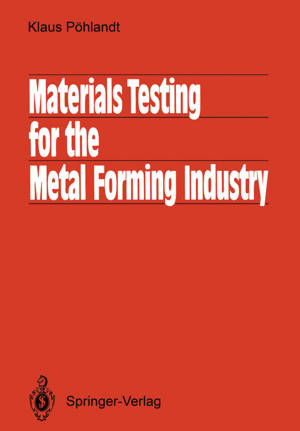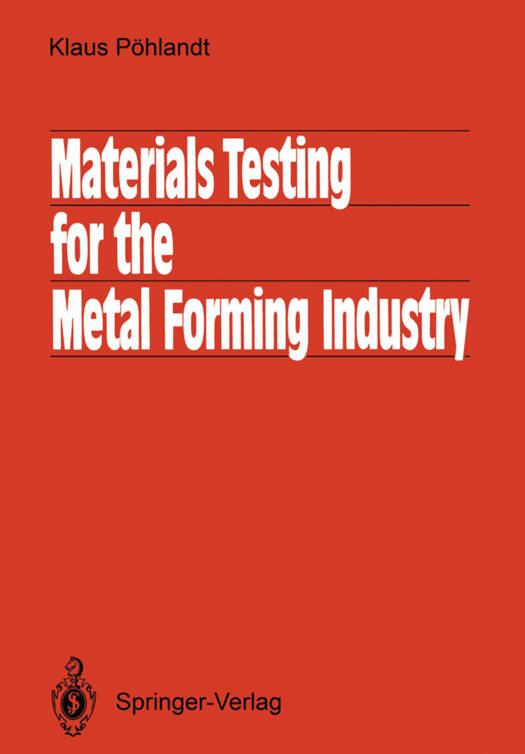
- Retrait gratuit dans votre magasin Club
- 7.000.000 titres dans notre catalogue
- Payer en toute sécurité
- Toujours un magasin près de chez vous
- Retrait gratuit dans votre magasin Club
- 7.000.0000 titres dans notre catalogue
- Payer en toute sécurité
- Toujours un magasin près de chez vous
105,45 €
+ 210 points
Description
This book is addressed to both research scientists at universities and technical institutes and to engineers in the metal forming industry. It is based upon the author's experience as head of the Materials Science Department of the In- stitut fUr Umformtechnik at the University of Stuttgart. The book deals with materials testing for the special demands of the metal for- ming industry. The general methods of materials testing, as far as they are not directly related to metal forming, are not considered in detail since many books are available on this subject. Emphasis is put on the determination of processing properties of metallic materials in metal forming, i. e. the forming behavior. This includes the evaluation of stress-strain curves by tensile, up- setting or torsion tests as well as determining the limits of formability. Among these subjects, special emphasis has been laid upon recent developments in the field of compression and torsion testing. The transferability of test results is discussed. Some testing methods for the functional properties of workpieces in the final state after metal forming are described. Finally, methods of testing tool materials for bulk metal forming are treated. Testing methods for surface properties and tribological parameters have not been included. The emphasis is put on the deformation of the specimens. Prob- lems related to the testing machines and measuring techniques as well as the use of computers are only considered in very few cases deemed necessary.
Spécifications
Parties prenantes
- Auteur(s) :
- Traducteur(s):
- Editeur:
Contenu
- Nombre de pages :
- 226
- Langue:
- Anglais
Caractéristiques
- EAN:
- 9783642502439
- Date de parution :
- 27-05-12
- Format:
- Livre broché
- Format numérique:
- Trade paperback (VS)
- Dimensions :
- 170 mm x 244 mm
- Poids :
- 394 g

Les avis
Nous publions uniquement les avis qui respectent les conditions requises. Consultez nos conditions pour les avis.






